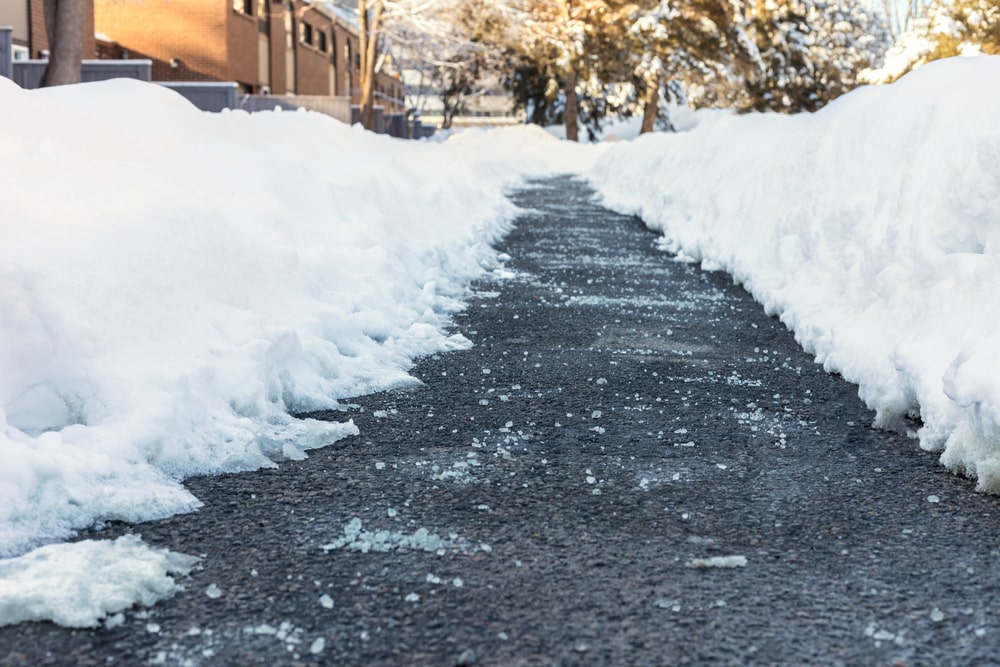Even though the greater Atlanta area only sees an average annual snowfall of two inches, it’s still important to plan ahead of the snow and make the roads and sidewalks safer for pedestrians, cyclists, and vehicles. While salt is a helpful deicing tool, many wonder how it affects asphalt and concrete. In this article, we’ll cover those two questions and the reasons why.
Does Salt Affect Concrete?
Salt doesn’t directly affect concrete, but the impact it has after doing its job does. Concrete is a porous material prone to small fissures. When the ice on the concrete melts, it goes down those tiny fissures and refreezes. The ice then expands, which creates more holes, weak points, and more significant gaps in the concrete.
Salt also lowers the pH of concrete, and the acidity of the salt then eats at the aggregate, affecting the strength and the structure of the concrete, which makes the damage from repeated freezing and thawing even more pronounced.
Does Salt Affect Asphalt?
If your driveway or parking lot was created using hot mix asphalt, the good news is that the hot mix asphalt is less likely to deteriorate due to salting, but the de-icer can exacerbate the freeze-thaw cycle effects and make existing potholes worse. Hot-mix asphalt is more durable and stronger than cold-mix asphalt.
Cold mix asphalt is more often used to repair asphalt issues such as potholes or cracks. It’s often used mainly for roads with high traffic and for highways. The aggregate is heated before mixing with the bitumen, and the heat makes the asphalt material more pliable and better able to adhere to the surface.
Advantages of Using Salt For Asphalt
While salt can make existing potholes worse and exacerbate the effects of the freeze-thaw cycles, that doesn’t mean there aren’t advantages to using salt for asphalt. One of the main advantages of laying down salt on driveways and sidewalks is that it prevents ice and snow buildup. As the de-icer prevents ice buildup, it reduces the chances of someone falling and injuring themselves on your property.
Better Traction
Ice and snow on the roads make driving more difficult, but applying salt to driveways reduces the possibility of vehicular accidents by increasing the surface friction of the asphalt. While many people don’t like the noise of their tires going over the road salt or that they need to wash their cars more frequently, it’s a good tradeoff for not sliding around during the winter months.
Inexpensive
Salt is inexpensive, making it ideal for businesses with a tight budget. However, despite road salt’s advantages, some prefer calcium magnesium acetate and potassium acetate, even though they’re a little more expensive, as they don’t affect water quality, soil erosion, harm wildlife, or contribute to corrosion.
If you’re concerned about the effects of salt on your asphalt and concrete surfaces and require asphalt resurfacing, patching, or seal coating, then now is the time for action. At GWP Paving, our professionals take steps to help you develop a pavement management plan to maximize the life of your asphalt. If you have any questions or need our paving services, contact us today by filling out our online form or call us at 678-377-3113.






